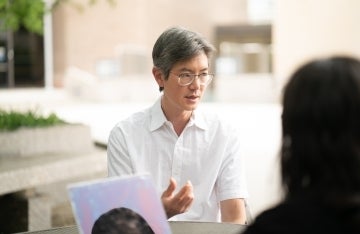Are Union Nurses Feminists?
Professor Jessa Lingel studies the tensions between feminism and union organizing among nurses.

Photo Credit: Artur Tumasjan / Unsplash
Founded in 1903, the California Nurses Association (CNA) is one of the most powerful nursing unions in the country. CNA has more than 100,000 members who work in over 200 facilities. Many of these members connect their profession and their union work with social justice and have self-described socialist and/or activist leanings. Why then do the members, who are largely women, seem hesitant to connect themselves with feminism?
“Nursing is historically seen as a women’s profession in the United States,” says Annenberg Assistant Professor Jessa Lingel, “which may mean a feminist praxis is less necessary for union work than in a male-dominated field, like steelwork.”

Thanks to a new faculty research grant from the Trustees’ Council of Penn Women, Lingel aims to study this phenomenon. She hopes to explore the tension between feminism and union organizing, which has important implications for future research on feminist politics and labor activism.
Lingel plans to conduct dedicated fieldwork, including participant observation of CNA meetings and negotiations as well as one-on-one interviews with CNA members. In fact, she has already conducted four interviews in collaboration with CNA nurse representative Kim Branciforte, R.N., M.S.N, who happens to also be Lingel’s sister. In addition, Lingel is interested in the ritualized practices around sharing and comparing union documents, like contracts.
Lingel and Branciforte, along with Postdoctoral Fellow Rosemary Clark-Parsons, intend to use their research to produce materials that are useful to CNA, including a digital archive of edited interviews and a report highlighting key strategies.
“I aim to produce work that is conceptually exciting within the field of Communication and methodologically rigorous,” Lingel says. “And my goal is for the same work to also have clear implications for those outside the academy, particularly activists.”
Lingel studies digital culture, looking for ways that relationships to technology can show us gaps in power or possibilities for social change. In addition to publishing articles in a number of academic journals, she is the author of Digital Countercultures and the Struggle for Community (MIT Press 2017) and The People’s Republic of Craigslist: A Social History of the Web that Wouldn’t Gentrify (forthcoming from Princeton University Press).



